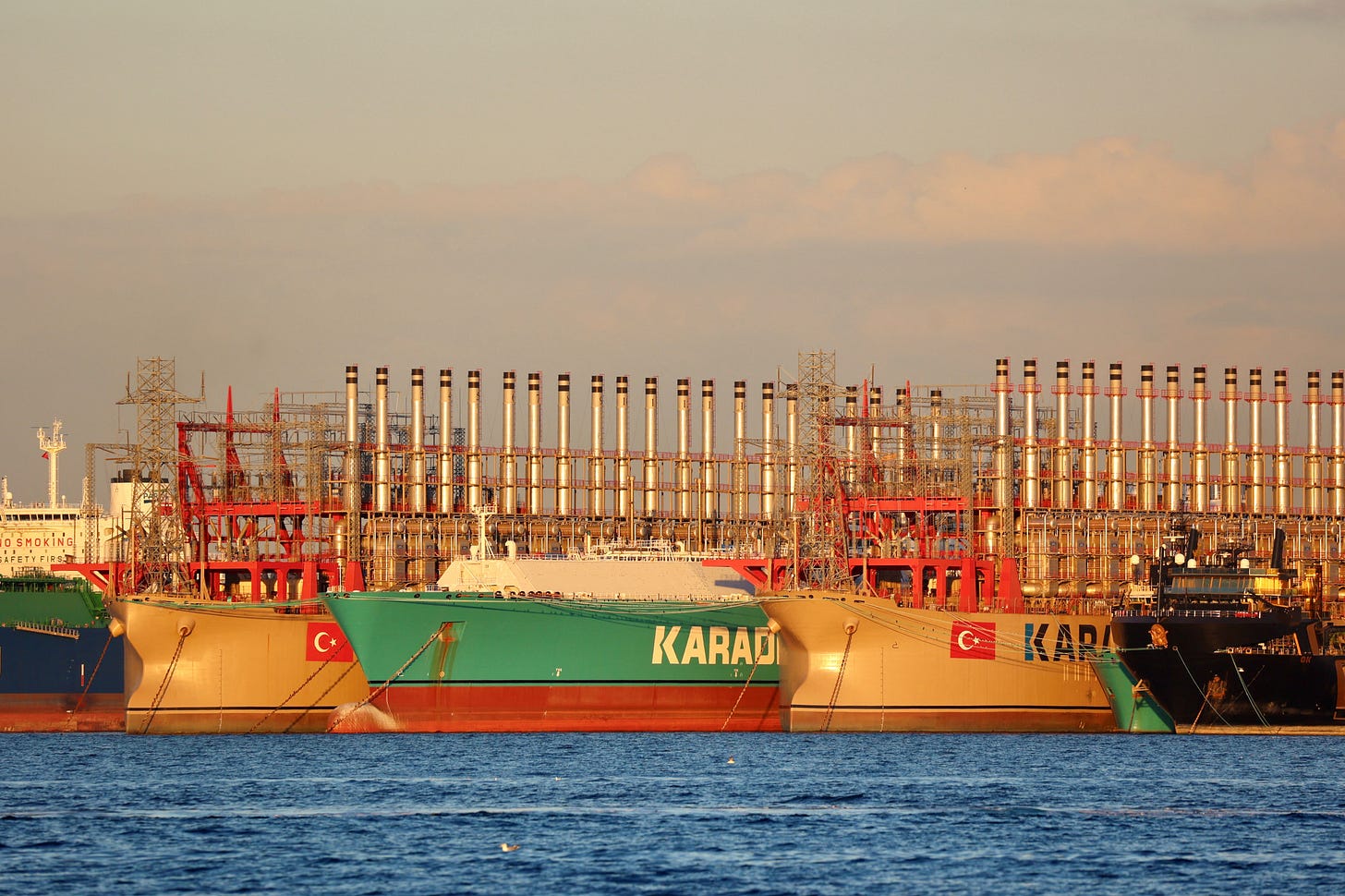Notes from the edge of civilization: Apr. 21, 2024
The many ways the government wants to continue spying on you. Mexico is withholding water it owes the U.S. And it's lights out in Sierra Leone.
The United States government just reauthorized a two-year extension of a 9/11-era surveillance act, which allows intelligence agencies to gather digital communications without a warrant. The Foreign Intelligence Surveillance Act (FISA) is supposed to be restricted to non-citizens only, and supporters claim it is a critical tool to safeguard national security. But several lawmakers have alleged that it is misused by intelligence agencies and can be weaponized against Americans.
Under FISA’s Section 702, the government hoovers up massive amounts of internet and cell phone data on foreign targets. Hundreds of thousands of Americans’ information is incidentally collected during that process and then accessed each year without a warrant — down from millions of such queries the U.S. government ran in past years. Critics refer to these queries as “backdoor” searches.
Republicans successfully argued that the proposed five-year extension be reduced to two years. In doing so, they’re hoping to allow a second Donald Trump presidency the opportunity to overhaul the act should he win re-election. Whether any of this actually happens is actually anyone’s guess.
What we can actually surmise is that we’re being spied on. But then, Edward Snowden told us that a long time ago.
Meanwhile, if you’re an investor in the stock market, your privacy might be at risk in a whole new, unusual way.
A lawsuit filed this week against the U.S. Securities and Exchange Commission accuses the SEC of “acting without authority to create the Consolidated Audit Trail, a database intended to collect virtually all U.S. trading data,” according to Bloomberg.
The suit, filed in federal court in Waco, Texas, and led by the National Center for Public Policy Research, says the database “enables SEC to review private citizens’ investment choices and, in many cases, to see their entire portfolios.” The suit claims this is a violation of constitutional protections for free speech and against warrantless searches and seizures.
We’re certain this database is intended only to watch the bad actors, right? RIGHT? (Um, Edward Snowden warned us of these powers a while ago — but then, you already knew that from the previous story.)
This week, two South Texas counties issued disaster declarations as part of an effort to conserve local water, seek assistance and resources from the state, and collaborate with the federal government to press Mexico to provide water it owes the U.S. under an international treaty.
The terms of that 1944 treaty require Mexico to deliver 1,750,000 acre-feet of water every five years to the U.S. from six tributaries into the Rio Grande river. In exchange, Mexico receives water from the Colorado River in the United States. As the Texas Tribune reports:
The current five-year cycle doesn't end until October 2025, so while Mexico hasn't yet violated the terms of the treaty, it is behind on its water deliveries by more than 700,000 acre-feet as of April 6, according to International Boundary & Water Commission, the agency tasked with overseeing the water and boundary treaties.
The lack of water is having a direct impact on agriculture. Farmer Mike England, who grows sugar cane (among other crops) in Mercedes, Texas, told the Tribune that he had to destroy the 500 acres of sugar he’d grown, since Texas’ last sugar mill closed due to a lack of water earlier this year.
"And now that I don't have any water, what am I going to plant there?" England said.
While Texans struggle with a lack of water, people in Sierra Leone’s capital, Freetown, have gone without power for weeks. That’s because of an unpaid bill of about $48 million its federal government owes Karpowership, the Turkish company that supplies 80% of Sierra Leone’s electricity needs.
According to a BBC News report, Karpowership is one of the world's largest floating power plant operators. Several African states rely on it for electricity, but the company takes a hard line over non-payment. Last October, it cut power to Guinea-Bissau's capital, Bissau, over unpaid bills.
Karpowership has grown rapidly in Africa since it was founded in 1996, providing sustainable and reliable power for cash-strapped countries. The company now has three dozen ships in more than 20 countries, with a global workforce of 2,600 people.
This week on Collapse Life:
The distinct danger of being naive
Don't assume it'll all be OK or that you alone will be able to evade the consequences of collapse.
The Soviets had them. Will we, too?
A mesh string bag that was ubiquitous in the Soviet Union carries a lot of meaning, and some important lessons for what we're experiencing today.
Exposing the toxic foods we feed our children
Zen Honeycutt, founder of Mom’s Across America, shines a light on how the conventional food system is silently poisoning Americans, both young and old alike.







